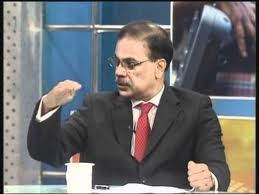
13 Bangladesh power projects lack funding
Bangladesh power projects amounting to 13,000 megawatt could not be implemented due to liquidity problems.
According to the ministry of power, it needs USD 17 billion, to implement the 13,000 megawatt power projects.
Bangladesh's Power Division was not getting a necessary Tk. 1,600-crore support from the Bangladesh Infrastructure Finance Fund, according to a finance ministry official.
The government formed the BIFF two years ago, to finance top priority projects in the infrastructure sectorincluding power.
The struggling power generation schemes include 450MW Siddhirganj, 360MW Bheramara, 225MW Sikalbaha, 225MW Bhola, and 250MW Barapukuria.
Furthermore, the 150MW Sylhet, 150MW Chandpur, 150MW Sirajganj and 150MW Khulna had already missed their
deadline for production, adding to their installation costs, he further said.
“To overcome the situation the finance ministry and the Power Division last month sat with the Prime Minister.
The Bangladesh Bank governor, who was also there, apprised the PM that the projects would not get any foreign
finance, as all the projects were unsolicited and the local banks were unwilling to provide loan to these projects, because the project documents were not done properly,” a finance ministry official said.
The Summit Group, country’s single largest power producer in the private sector, is also facing serious fund
crunch as the World Bank has refused to offer performance risk guarantee against its three IPP projects.
As a result, the fate of the three IPP projects also remain uncertain and throws an axe at the government plan to add 2,000 megawatt more electricity, into the grid by 2014.
“We won’t create any obstruction in the Bibiyana power project, if there is any other investor willing to implement the project as per schedule,” said Aziz Khan, chairman of the Summit Group. The Power Division was yet to handover the proposed land to them to install the power plant, he added.
According to estimates by the ministry of power, expected fund requirements for the generation, transmission and distribution sectors stand at about USD 18 billion, USD 2 billion and USD 4 billion, respectively.
“The government was busy installing small and costly power plants, instead of base-load and long-lasting planned stations, in its last three years’ tenure, causing extra pressure on the country’s fiscal management,” Dr Ijaz Hossain, a BUET professor, said.
For more.























 Advertise
Advertise






